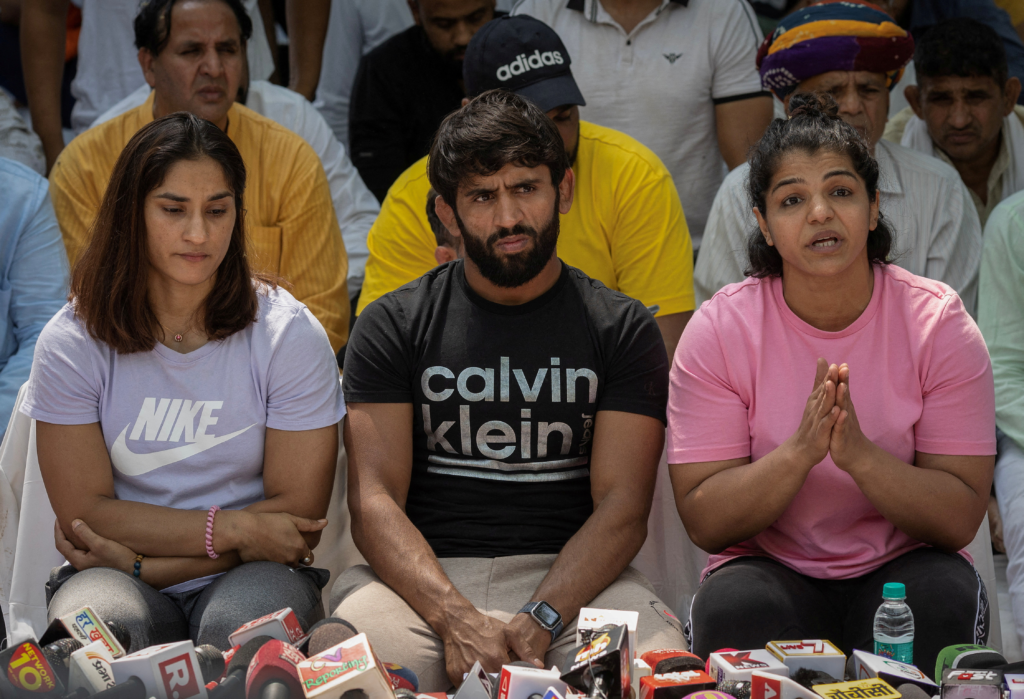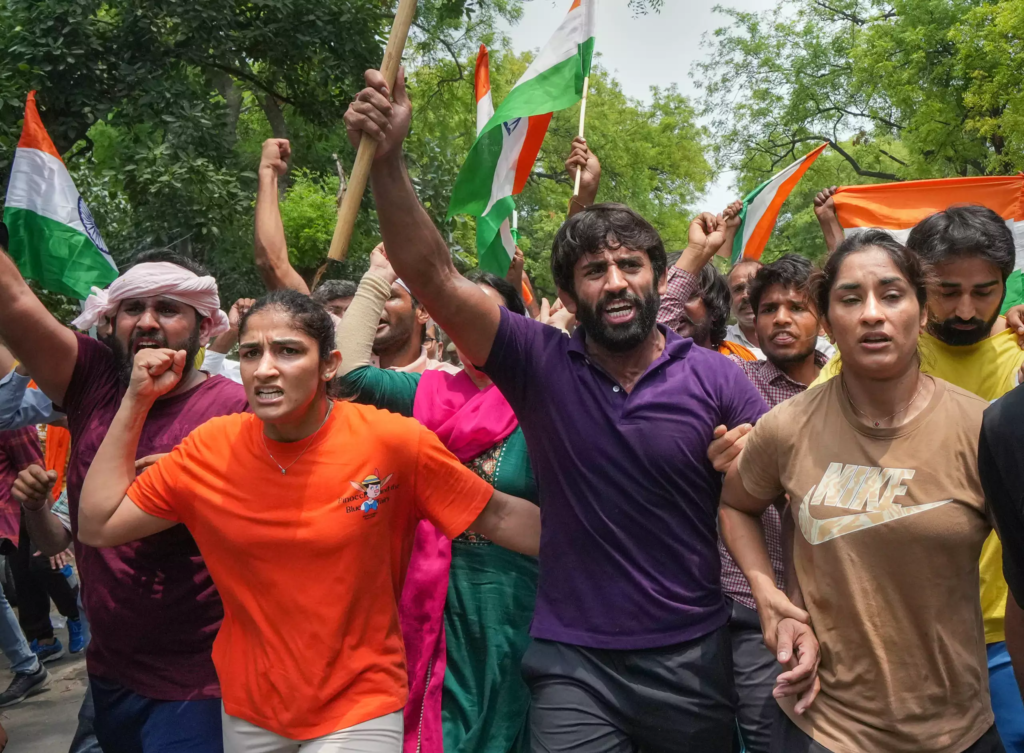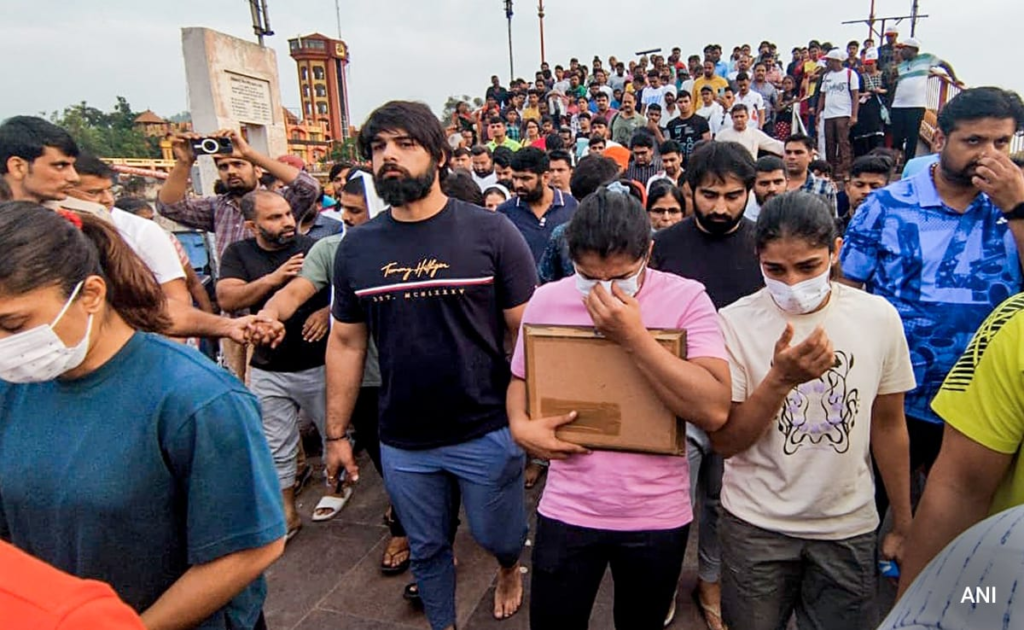
WFI News: The Indian wrestling fraternity has been embroiled in a recent controversy. Now, prominent wrestlers like Bajrang Punia, Vinesh Phogat, and Sakshi Malik have approached the Delhi High Court. They allege that the Wrestling Federation of India (WFI) violated the Sports Code during its recent elections. This article delves into the crux of the issue, exploring the specific allegations and their potential implications.
WFI News: Allegations of Code Violations

The wrestlers have raised several critical concerns regarding the WFI elections. They’ve claimed violations of the Sports Code established by the Ministry of Youth Affairs and Sports (MoYAS). These allegations primarily focus on three key aspects:
- Age Limit: The Code stipulates that office bearers in a National Sports Federation (NSF) must be below 70 years of age. However, the wrestlers allege that several WFI committee members exceed this age limit.
- Athletes’ Commission: The Code mandates the establishment of an Athletes’ Commission within each NSF to represent the voice and concerns of athletes. The wrestlers contend that the WFI lacks such a commission.
- Term Limit: The Code specifies a maximum tenure of 12 years for any office bearer position within an NSF. The wrestlers claim that some WFI committee members have held their positions for more than 12 years, exceeding the stipulated limit.
WFI News: Implications of the Allegations

If proven true, these allegations could have significant consequences for the WFI and the Indian wrestling scene:
- Loss of Recognition: The MoYAS has the authority to de-recognize any NSF found to be in violation of the Sports Code. This could potentially lead to the WFI losing its official recognition as the governing body for wrestling in India.
- Impact on Funding and Opportunities: De-recognition by the MoYAS could also jeopardize the WFI’s access to government funding and support, potentially impacting the development of wrestling programs and opportunities for athletes.
- Loss of Credibility and Trust: The allegations, if substantiated, could significantly damage the WFI’s credibility and erode the trust of wrestlers and stakeholders in the organization’s leadership.
The Path Forward
The Delhi High Court is currently examining the case and will determine the validity of the wrestlers’ claims. Depending on the court’s decision, several potential outcomes may unfold:
- Addressing the Violations: If the court finds merit in the allegations, it may direct the WFI to rectify the violations by conducting fresh elections adhering to the Sports Code’s guidelines. This could involve age restrictions, establishing an Athletes’ Commission, and ensuring adherence to term limits.
- Continued Scrutiny: The case has brought to light the importance of transparency and accountability within sports governing bodies. This increased scrutiny could lead to broader reforms within the WFI and potentially other NSFs, ensuring better governance and athlete representation.
- Potential Reforms: The MoYAS might also consider revising the Sports Code or implementing stricter enforcement mechanisms to prevent similar situations from arising in the future.
Conclusion
The ongoing legal battle between the wrestlers and the WFI highlights the critical need for transparency and adherence to established regulations within sports bodies. While the court’s decision will determine the immediate course of action, the episode serves as a crucial reminder of the importance of upholding fair play and ensuring athlete representation in Indian sports governance.

[…] to established rules and regulations. Additionally, the IOA has directed the WFI to conduct athlete commission elections, promoting athlete participation in decision-making processes. Balancing these […]